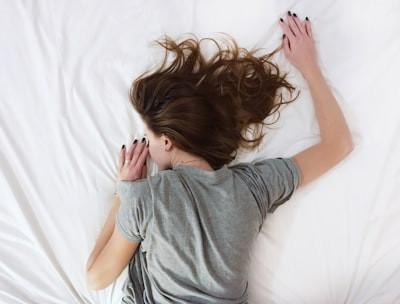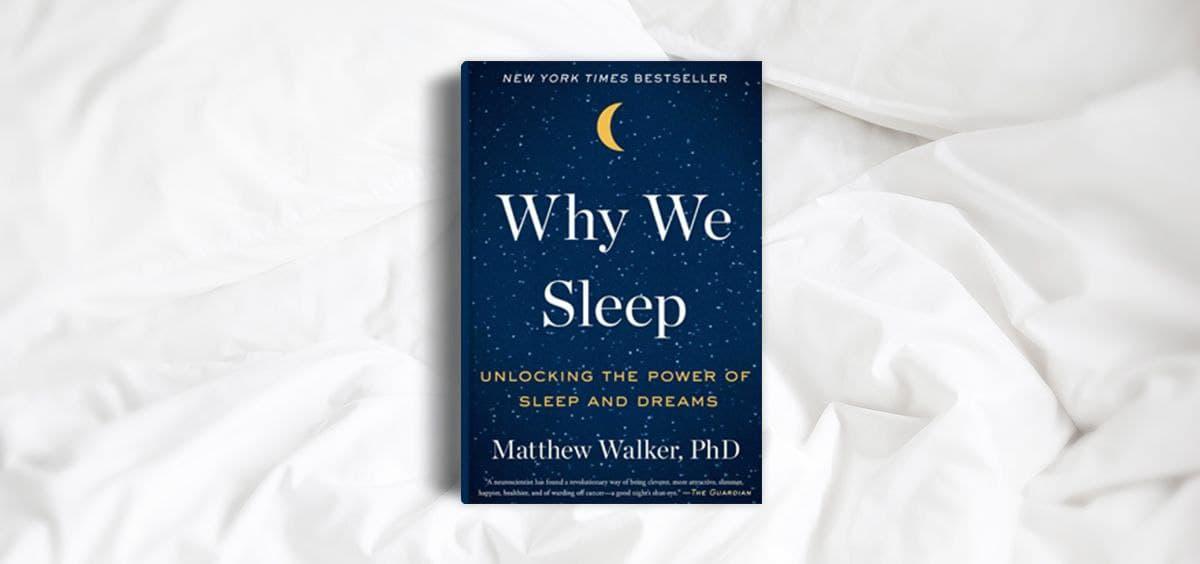12 Tips For A Healthy Sleep From The Book: Why We Sleep
Curated from: medium.com
Ideas, facts & insights covering these topics:
13 ideas
·2.02K reads
19
1
Explore the World's Best Ideas
Join today and uncover 100+ curated journeys from 50+ topics. Unlock access to our mobile app with extensive features.
Introduction
Why We Sleep is the best book I have read on sleep. The author has beautifully summarized how important sleep is for our health. He writes the most difficult medical terms and phenomena related to sleep in such a simple and interesting way that a common reader can easily comprehend.
In the final lines of the book, the writer gives the 12 tips for healthy sleep. These tips, you can say are the essence of the whole book.
33
176 reads
1. Stick to a sleep schedule
Go to bed and wake up at the same time every day. Sleeping later on weekends won’t fully make up for a lack of sleep during the week and will make it harder to wake up early on Monday morning.
Set an alarm for bedtime just like you set up one for the morning.
Often we set an alarm for when it’s time to wake up but fail to do so for when it’s time to go to sleep.
33
179 reads
2. Do not Exercise Before Going to Sleep
Exercise is good for your health, but you should not do it late in the day. Try to exercise at least thirty minutes on most days but not later than two to three hours before your bedtime.
Thiry minute of exercise is great for your health, however, don’t do it later than two to three hours before your bedtime.
34
175 reads
3. Avoid Caffeine and Nicotine
Coffee, colas, certain teas, and chocolate contain caffeine, and its effects can take as long as eight hours to wear off fully.
Therefore, a cup of coffee in the late afternoon can make it hard for you to fall asleep at night.
Nicotine caused smokers to sleep only very lightly. In addition, smokers often wake up too early in the morning because of nicotine withdrawal.
34
153 reads
5. Avoid large meals and beverages late at night
A light snack is okay, but a large meal can cause indigestion, which interferes with sleep.
Drinking too many fluids at night can cause frequent awakenings to urinate.
33
155 reads
6. Avoid medicines that delay or disrupt your sleep.
Some commonly prescribed heart, blood pressure, or asthma medications can disrupt sleep patterns.
If you have trouble sleeping, talk to your health care provider or pharmacist to see whether any drugs you’re taking might be contributing to your insomnia and ask whether they can be taken at other times during the day or early in the evening.
33
114 reads
8. Relax before bed
Don’t overschedule your day. A relaxing activity, such as reading or listening to music, should be part of your bedtime ritual.
34
162 reads
9. Take a hot bath before bed
The drop in body temperature after getting out of the bath may help you feel sleepy, and the bath can help you relax and slow down so you’re more ready to sleep.
34
149 reads
10. Dark bedroom, cool bedroom, gadget-free bedroom
Get rid of anything in your bedroom that might distract you from sleep, such as noises, bright lights, an uncomfortable bed, or warm temperatures. You sleep better if the temperature in the room is kept on the cool side.
Having a comfortable mattress and pillow can help promote a good night’s sleep.
Turn the clock’s face out of view so you don’t worry about the time while trying to fall asleep.
35
126 reads
11. Have the right sunlight exposure.
Try to get outside in natural sunlight for at least thirty minutes each day. If possible, wake up with the sun or use very bright lights in the morning.
If you have problems falling asleep, you should get an hour of exposure to morning sunlight and turn down the lights before bedtime.
34
149 reads
12. Don’t lie in bed awake.
If you find yourself still awake after staying in bed for more than twenty minutes and you are starting to feel anxious or worried, get up and do some relaxing activity until you feel sleepy.
The anxiety of not being able to sleep can make it harder to fall asleep.
35
161 reads
IDEAS CURATED BY
Maaz Zulfiqar's ideas are part of this journey:
Learn more about health with this collection
How to make sustainable choices in everyday life
Identifying ways to reduce waste and conserve resources
Understanding the impact of human actions on the environment
Related collections
Similar ideas
Read & Learn
20x Faster
without
deepstash
with
deepstash
with
deepstash
Personalized microlearning
—
100+ Learning Journeys
—
Access to 200,000+ ideas
—
Access to the mobile app
—
Unlimited idea saving
—
—
Unlimited history
—
—
Unlimited listening to ideas
—
—
Downloading & offline access
—
—
Supercharge your mind with one idea per day
Enter your email and spend 1 minute every day to learn something new.
I agree to receive email updates

